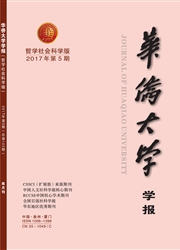

 中文摘要:
中文摘要:
金融危机之后,我国城镇居民的消费行为发生了很多变化,而消费行为的这些变化通过替代效应、收入效应和预算约束效应对房价波动产生影响:生活必需品消费的增加导致房价下跌,而低档消费品的增加导致房价上涨。采用我国31个省市的年度数据构建动态面板模型,实证分析结果表明:从全国层面来看,金融危机背景下居民服装消费行为、服务消费、粮食消费、婚姻与房价为负相关;储蓄行为、交通消费行为、收入水平以及教育水平对房价产生了正相关的影响。从区域层面来看,我国城镇居民的消费行为对房价的影响存在较明显的地区差异性,相应各地区的发展政策应有所不同。
 英文摘要:
英文摘要:
After the financial crisis, the consumption behavior of urban residents in our country has changed a lot, and the changes in consumer behavior exert influences on the housing price fluctuations through substitution effect, income effect and budget constraint effect: the increase in the consumption of life necessities leads to the decline in housing prices ; while the increase in the low price of consumer goods leads to rising housing prices. By employing dynamic panel models based on the annual data of 31 provinces, the empirical study shows: from the national level, there is a negative correlation between the housing prices and the consumer clothing consumption, service consumption, food consumption, and marriage, while a positive correlation between housing prices and saving behavior, traffic consumption behavior, income level and education level; from the regional level, the consumption behavior of urban residents in China has obvious regional differences, and the corresponding development policies should be carried out diversely.
 同期刊论文项目
同期刊论文项目
 同项目期刊论文
同项目期刊论文
 期刊信息
期刊信息
